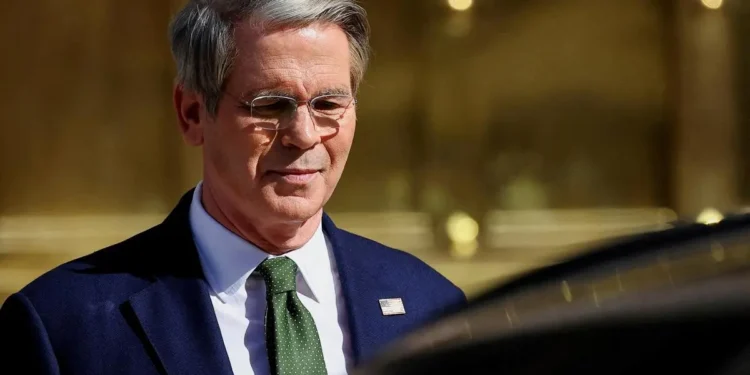Treasury Secretary Scott Bessent recently made a statement that has caused quite a stir in the international financial community. In a speech at the Economic Club of New York, Bessent expressed his concern over the performance of two of the world’s most influential international financial institutions – the International Monetary Fund (IMF) and the World Bank.
Bessent, who has been a vocal critic of the IMF and the World Bank in the past, stated that these institutions are “falling short” in their mission to promote global economic stability and growth. He highlighted the need for these institutions to adapt to the changing global economic landscape and to better address the challenges faced by emerging economies.
While his remarks may have raised eyebrows, it is important to note that Bessent did not call for the United States to withdraw from these institutions. Instead, he urged for a reassessment of their roles and functions in the current global economic scenario.
The IMF and the World Bank were established after World War II with the aim of promoting international economic cooperation and providing financial assistance to countries in need. Over the years, they have played a crucial role in stabilizing the global economy and helping countries recover from financial crises. However, as Bessent pointed out, the world has changed significantly since their inception and it is time for these institutions to evolve as well.
One of the main issues highlighted by Bessent was the lack of representation of emerging economies in the decision-making processes of the IMF and the World Bank. He stressed the need for these institutions to be more inclusive and give a greater voice to countries that are now major players in the global economy. This would not only make the institutions more effective, but also increase their legitimacy in the eyes of the international community.
Bessent also called for a reevaluation of the policies and programs implemented by the IMF and the World Bank. He argued that their one-size-fits-all approach may not be suitable for all countries and that more tailored solutions are needed to address the unique challenges faced by each nation. This is particularly relevant in the case of emerging economies, which have different needs and priorities compared to developed countries.
It is clear that Bessent’s remarks have struck a chord with many in the international community. The IMF and the World Bank have faced criticism in the past for their policies and practices, and Bessent’s speech has reignited the debate on their effectiveness and relevance in today’s world.
However, it is important to note that Bessent’s intention is not to undermine these institutions, but rather to push for much-needed reforms. He acknowledged the valuable role they have played in the past and the potential they have to continue making a positive impact on the global economy.
In fact, Bessent’s call for reform is not new. Other prominent figures, including former World Bank Chief Economist Joseph Stiglitz, have also advocated for changes in the way these institutions operate. It is time for the IMF and the World Bank to listen to these voices and adapt to the changing times.
In conclusion, Treasury Secretary Scott Bessent’s remarks have sparked an important conversation about the role of the IMF and the World Bank in today’s world. While he has pointed out their shortcomings, he has also emphasized the need for these institutions to evolve and become more inclusive and effective. It is now up to the leaders of these institutions to take heed of these suggestions and work towards creating a more equitable and prosperous global economic system.










